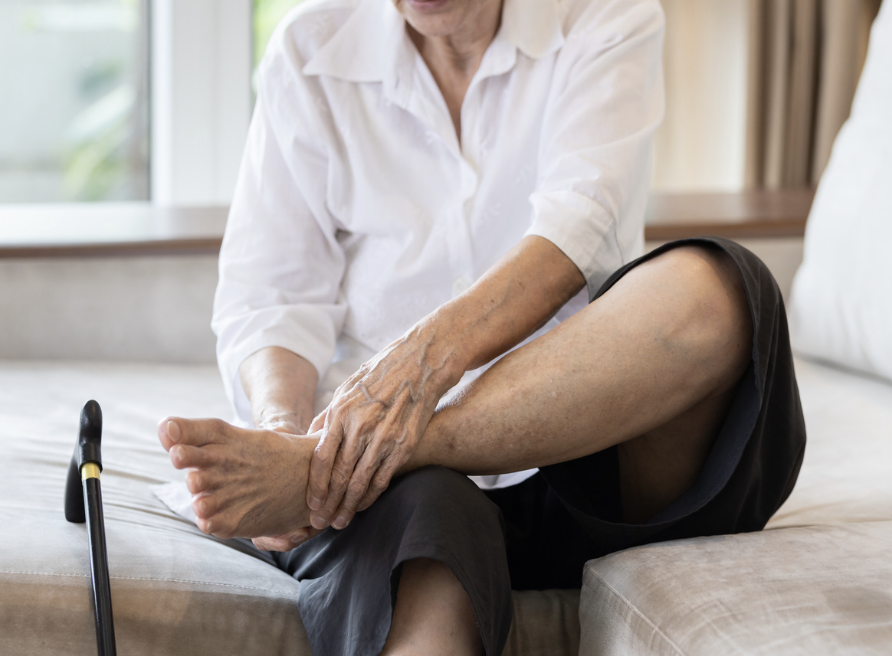Heel pain is common in some elderly and gives uneasy feelings to them. Most people assume that heel pain only occurs in athletes, but that is wrong. However, age is a significant risk factor for developing heel pain in the elderly.
In this article, causes and tips for managing heel pain will be addressed.
Causes of heel pain
A variety of factors can cause heel pain. A few causes of heel pain in the elderly are mentioned below.
1. Plantar Fasciitis occurs when the plantar fascia (a thick band of tissue that runs from the heel to the toes) becomes inflamed, which causes pain and tenderness in the heel.
2. Heel Spurs are bony growths that can develop on the underside of the heel bone. They can cause pain and discomfort, especially when walking or standing for long periods.
3. Achilles Tendinitis occurs when the Achilles tendon (which connects the calf muscles to the heel bone) becomes inflamed and causes pain in the back of the heel.
4. Osteoarthritis is a degenerative joint disease that can affect the joints in the feet, including the heel. It can cause pain, stiffness, and swelling in the affected joint.
5. Stress Fractures are small cracks in the bones of the foot, which can occur due to repetitive stress or overuse. They can cause pain in the heel or other areas of the foot.
6. Nerve Entrapment occurs when a nerve in the foot becomes compressed or pinched, causing pain and numbness in the affected area, including the heel.
7. Peripheral Arterial Disease affects the blood vessels in the legs and feet and can cause pain, cramping, and numbness in the feet, including the heel.
Footwear Modifications
Wearing shoes with adequate support, cushioning, and a low heel can help reduce pressure on the heels and alleviate pain. Orthotics, such as heel cups or shoe inserts, can provide additional support.
Physical Therapy
Stretching and strengthening exercises can help alleviate heel pain and prevent it from recurring. A physical therapist can design a tailored exercise program to help seniors improve their flexibility, mobility, and overall foot health.
Pain Medication
Over-the-counter pain medications like acetaminophen or ibuprofen can help manage heel pain. However, it is essential to consult with a healthcare provider before taking any medication, especially for older adults who may be taking other medications.
Rest and Ice
Resting the feet and applying ice to the affected area can help reduce inflammation and relieve pain. In addition, seniors can elevate their feet to reduce swelling and avoid activities that worsen the pain.
Shockwave Therapy
Extracorporeal Shockwave Therapy (ESWT) is a non-invasive treatment that uses high-energy sound waves to promote healing and reduce inflammation in the affected area. It effectively treats heel pain in some patients, including the elderly. However, consulting with a healthcare provider before pursuing this therapy is essential.
Take away home
Heel pain is usually associated with age and causes difficulty doing daily house chores for the elderly. However, it can be caused due to many issues, such as Plantar Fasciitis, Heel Spurs, Achilles Tendinitis, Osteoarthritis, Stress Fractures, Nerve Entrapment, and Peripheral Arterial Disease. You can manage the pain by using footwear modifications, rest and ice therapy, shockwave therapy, or physical therapy, or you may take painkillers to subside the pain with your doctor’s recommendation.

